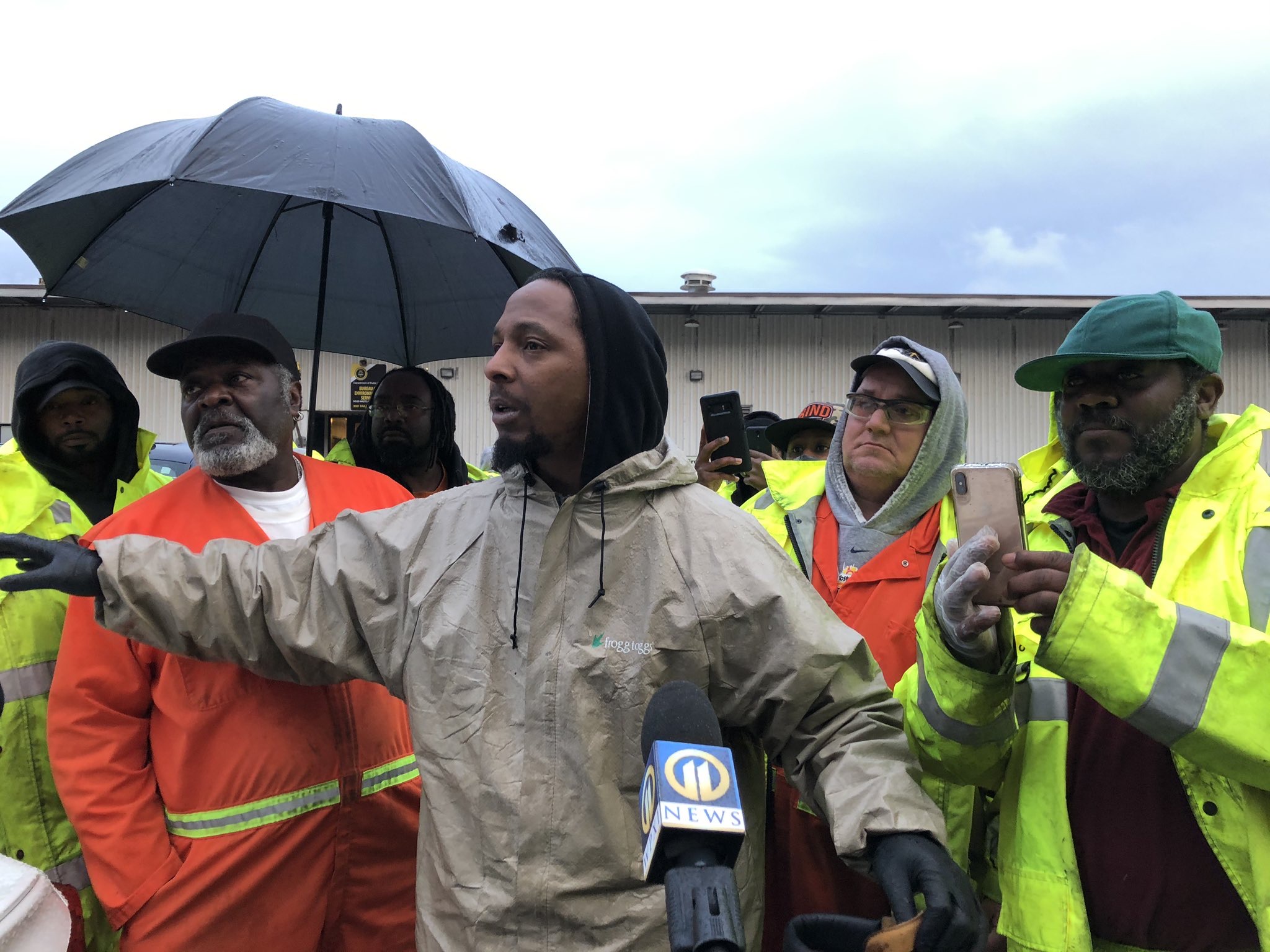PITTSBURGH, PA – Today, a group of several hundred, mostly African-American sanitation workers in Pittsburgh, members of Teamsters Local 249, went out on an illegal, wildcat strikes to protest unsafe working conditions during the COVID-19 pandemic.
The strike comes as momentum for strikes goes with #GeneralStrike becoming the top trending topic on twitter in the United States with even popstar Britney Spears calling for a General Strike.
Many are wondering if strikes like Pittsburgh’s sanitation workers strike could be the beginning of a growing strike wave as Trump demands that workers risk their lives to return to work quickly.
Workers in Pittsburgh and elsewhere are resisting calls to work in unsafe conditions during the COVID-19 pandemic.
“We want better equipment, protective gear. We have no masks, “one African-American sanitation worker told WPXI.
“We want hazard pay. Hazard pay is very important,” the worker told WPXI. “Why? Because we have high co-payments on insurance on any type of bill. We risk our lives every time we grab a garbage bag”.
“Here we are at my job. Ain’t picking up no rub,” African-American sanitation worker Fitzroy Moss said in a Facebook live video. “The rubbish is sitting there. That’s all they care about is picking up the garbage. They don’t even care about our health.”
Despite the strike being illegal under state law, the workers so far have made progress with Pittsburgh’s sanitation service. They won a small victory as management allowed the workers to take the day off as workers as they meet with representatives of Teamsters Local 249 to address safety concerns.
The strike comes as workers across the United States have begun engaging in a series of bold, illegal wildcat strikes that before COVID-19 pandemic would have been unthinkable.
This week, non-union African-American poultry workers at Perdue Farms in Georgia went out on a wildcat strike over unsafe conditions. Bus Drivers in Birmingham went on strike demanding over lack of protections during COVID-19 as well.
In Queens, New York, Amazon workers walked off the job last week after a co-worker tested positive for COVID-19.
In Maine, naval shipyard workers at the Bath Iron Workers went on a “sickout” strike in violation of federal law to protest being labeled essential workers as shipyard workers.
Anger has grown in the labor movement about unsafe working conditions, especially after the announcement yesterday of the deaths of 2 UAW members from COVID-19 while working at Chrysler.
Workers at Chrysler were only able to shut down their factories after workers in Sterling Heights, Michigan went on a wildcat strike after a co-worker tested positive for COVID-19.
With workers fearing COVID-19, many workers are willing to risk their jobs to save their lives.
Historically, General Strikes, like the one that began in 1919 after the influenza pandemic, begin in waves with large groups of workers going out on strikes. As other groups of workers see the support that initial wildcat strikes gain, they feel more confident of gaining the necessary leverage to win a strike.
During the West Virginia Teachers’ strike, teachers in Logan and Mingo County began in December of 2017 going out on one or two-day rolling strikes. These smaller, county-wide rolling strikes demonstrated that not only could teachers defy state law in striking without consequences, but that they could win mass public support.
The smaller strikes helped show teachers in other counties that they could take similar actions.
Much like how few predicted the mass wave of #Red4Ed teachers’ strike, many labor observers believe that the labor movement has found itself unexpectedly in the early stages of a mass general strike wave in the era of COVID-19.
“After health care workers, the working class and service industry workers are on the front lines, navigating the fraught effort to practice physical distancing,” says University of South Carolina-Upstate Professor Colby King, the Pittsburgh-area, son of a union steelworker.
“Without widespread testing in our communities and without employers providing protective gear, it’s easy to see why these workers are reconsidering the risks they are willing to put themselves, their families, and their communities at to go to work,” says King.
Donate to Help Us Cover How Workers Are Fighting Back Against COVID-19

